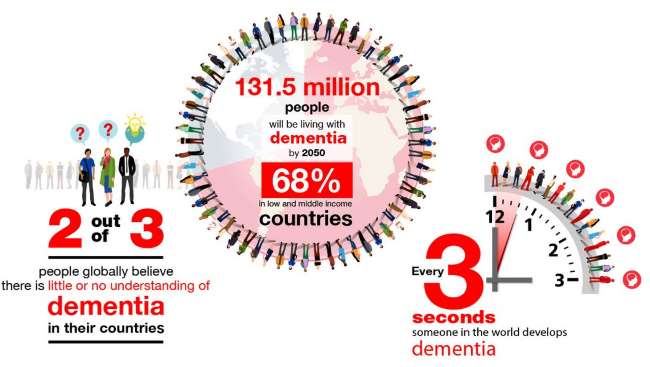Early Onset Alzheimer’s
Alzheimer’s is a disease that many people associate with the elderly. While it is true that many people in their mid-to-late 60’s are often diagnosed, people as young as 30 have been told they have Alzheimer’s. When you’re that young, you and the people around you are probably not watching for the signs of this disease and may not even know what they are. Keep reading to discover the signs of early onset Alzheimer’s and learn how to monitor and track your health with MemTrax.

Early Onset Alzheimer’s: The Signs
The early signs of Alzheimer’s are the same whether you are in your 30’s or 60’s. These signs include:
- Memory Loss That Disrupts Daily Life
- Challenges in Planning or Problem Solving
- Difficulty Completing Tasks
- Confusion with Time or Place
- Trouble Understanding Visual Images and Spatial Relationships
- New Problems with Words in Speaking and Writing
- Misplacing Items and Losing the Ability to Retrace Steps
- Decreased or Poor Judgment
- Withdrawal of Work or Social Activities
- Changes in Mood and Personality
What Causes Early Onset Alzheimer’s?

Many doctors don’t fully understand what causes Alzheimer’s in young people, but there may be a rare gene causing the early development of the disease. In a recent study by the Alzheimer’s Association, hundreds of families identified several rare genes that directly cause Alzheimer’s.
Early onset Alzheimer’s is a type of Alzheimers disease that starts happening earlier than usual. It can cause problems with memory, thinking, and behavior. Early onset AD is different from the more common type of AD, which usually starts in people who are 65 or older. Early onset Alzheimers can be hard to recognize at first because it might look like normal age-related changes. But over time, it can get worse and cause serious problems. Early onset Alzheimers is a serious medical condition that needs treatment. There is no one right way to treat it, but there are many different options. Treatment can help slow down the progression of the disease and help people live better lives. If you or someone you know has early onset Alzheimer’s, talk to a doctor about treatment options.
How Can You Help Yourself?
Some early indicators of early onset Alzheimer’s disease include forgetfulness, difficulty with planning and problem-solving, changes in mood or behavior, and difficulty with communication. If you notice any of these changes in yourself or a loved one, it’s important to see a doctor right away. Early diagnosis is key to getting the best treatment possible. There is no one test that can diagnose early onset Alzheimer’s disease. Doctors will look at a person’s medical history, do a physical exam, and do tests to rule out other conditions. They might also use brain imaging tests or genetic tests. If you are diagnosed with early onset Alzheimer’s disease, there are treatments that can help
If you have a family history of Alzheimer’s you may be interested in keeping track of your mental health. One way to monitor your ability to retain information is through the MemTrax test. The MemTrax test shows a series of images and asks users to identify when they’ve seen a repeated image. This test is beneficial for those worried about developing Alzheimer’s because the daily, weekly and monthly interaction with the system tracks memory retention and allows users to see if their scores are declining. Keeping track of your mental health is critical in managing and handling the disease. Take a MemTrax free test today!
About MemTrax
MemTrax is a screening test for the detection of learning and short-term memory issues, particularly the type of memory problems that arise with aging, Mild Cognitive Impairment (MCI), dementia and Alzheimer’s disease. MemTrax was founded by Dr. Wes Ashford, who has been developing the memory testing science behind MemTrax since 1985. Dr. Ashford graduated from the University of California, Berkeley in 1970. At UCLA (1970 – 1985), he attained an M.D. (1974) and Ph.D. (1984). He trained in psychiatry (1975 – 1979) and was a founding member of the Neurobehavior Clinic and the first Chief Resident and Associate Director (1979 – 1980) on the Geriatric Psychiatry in-patient unit. The MemTrax test is quick, easy and can be
